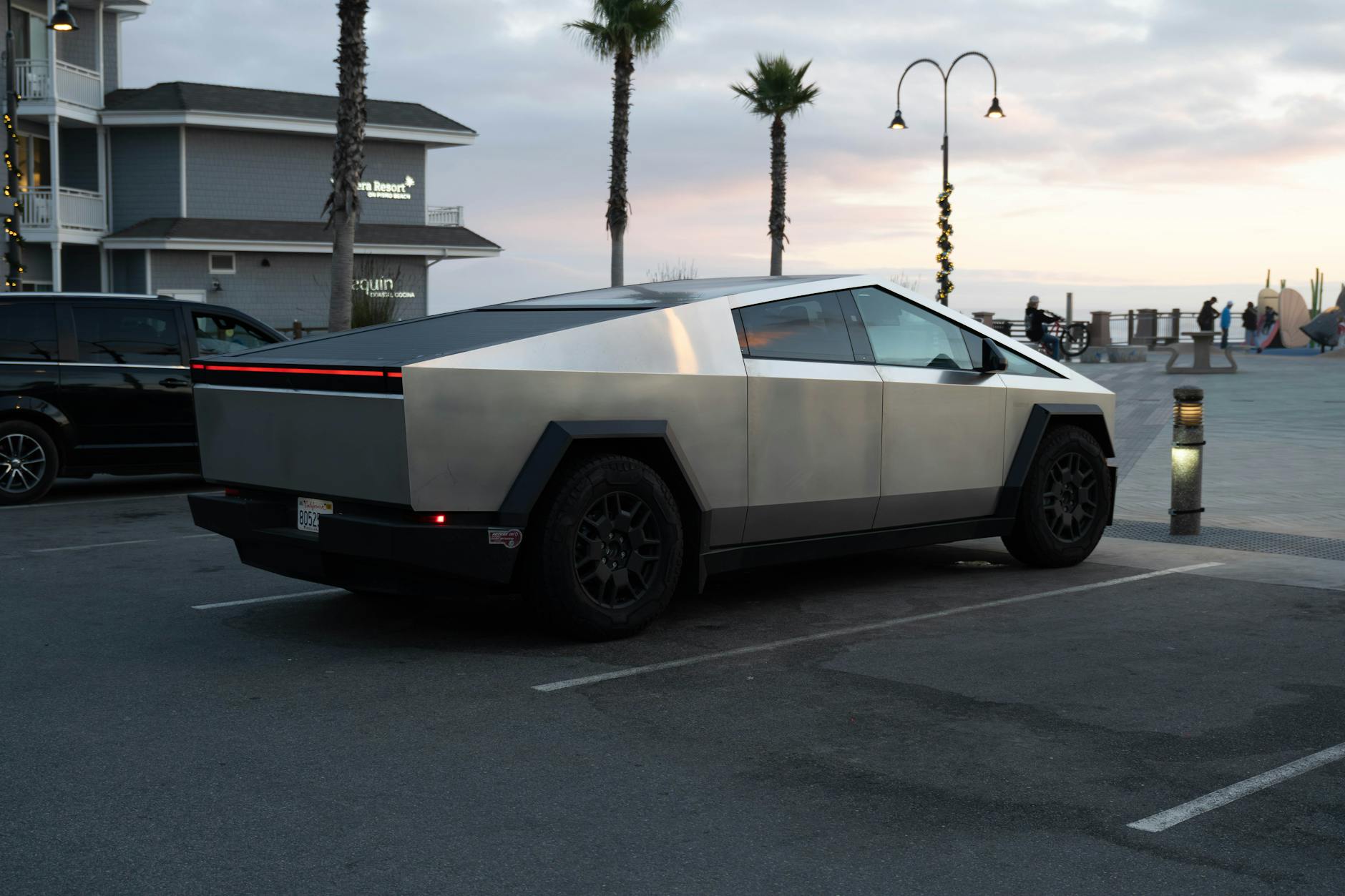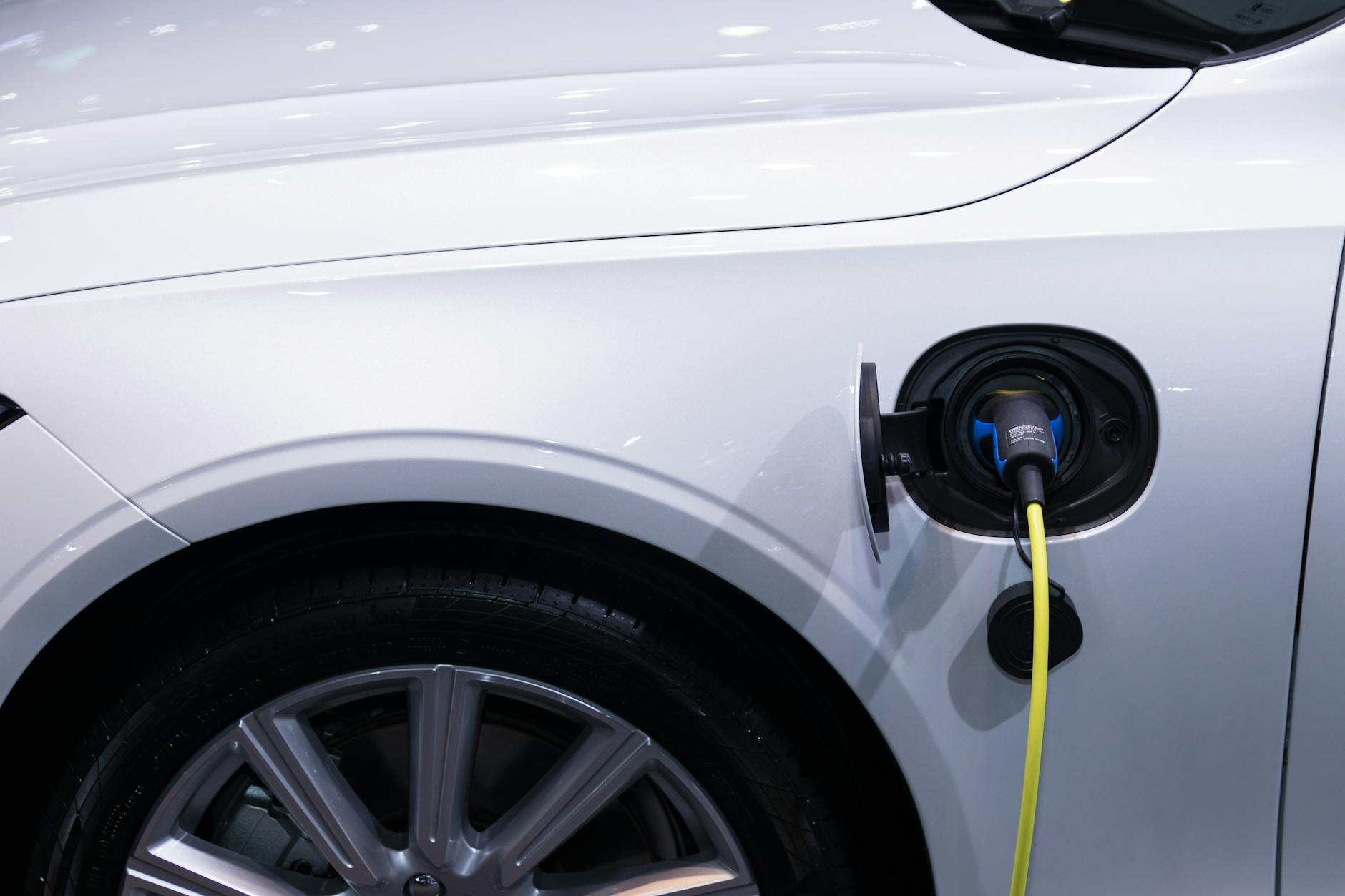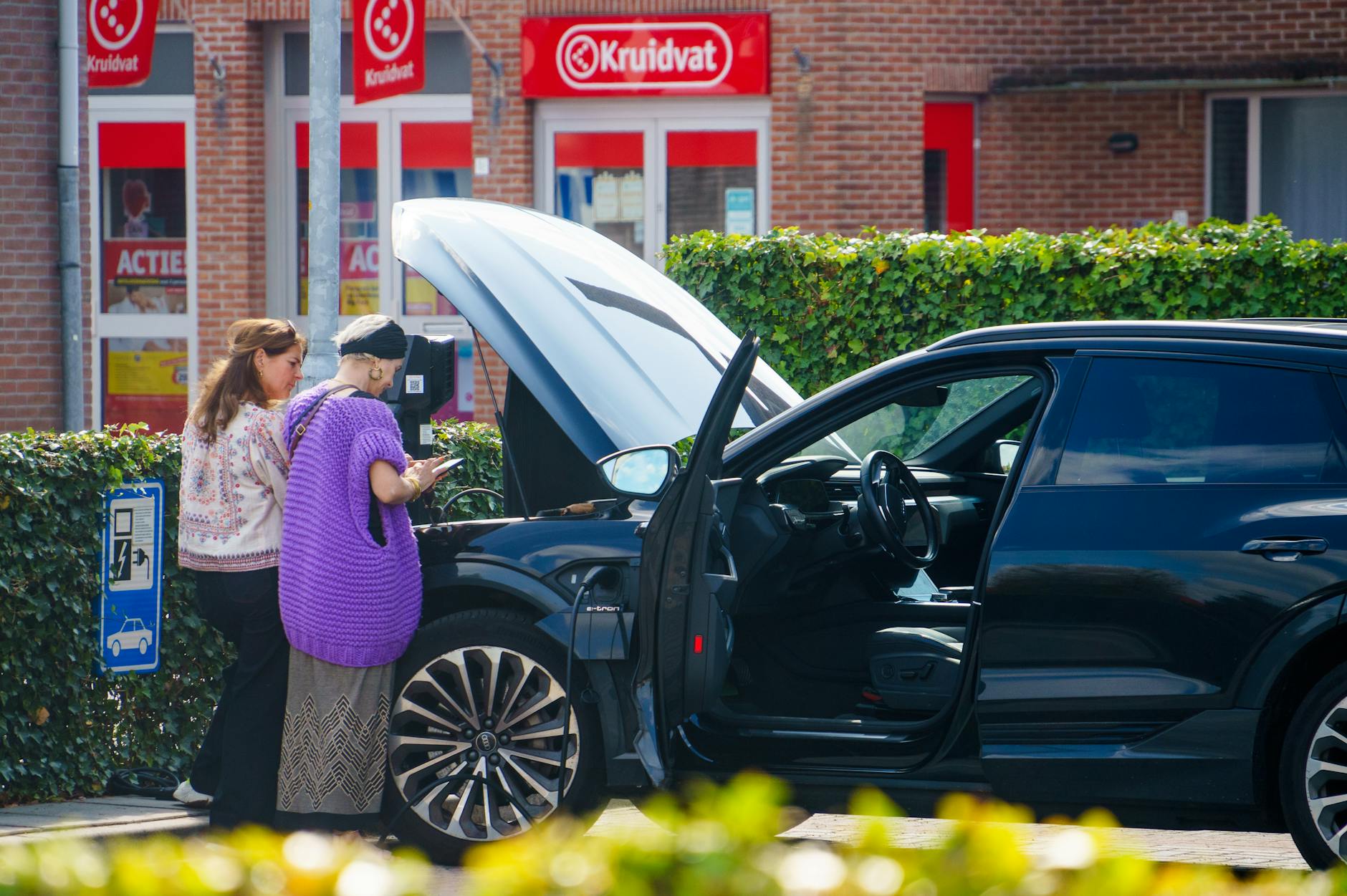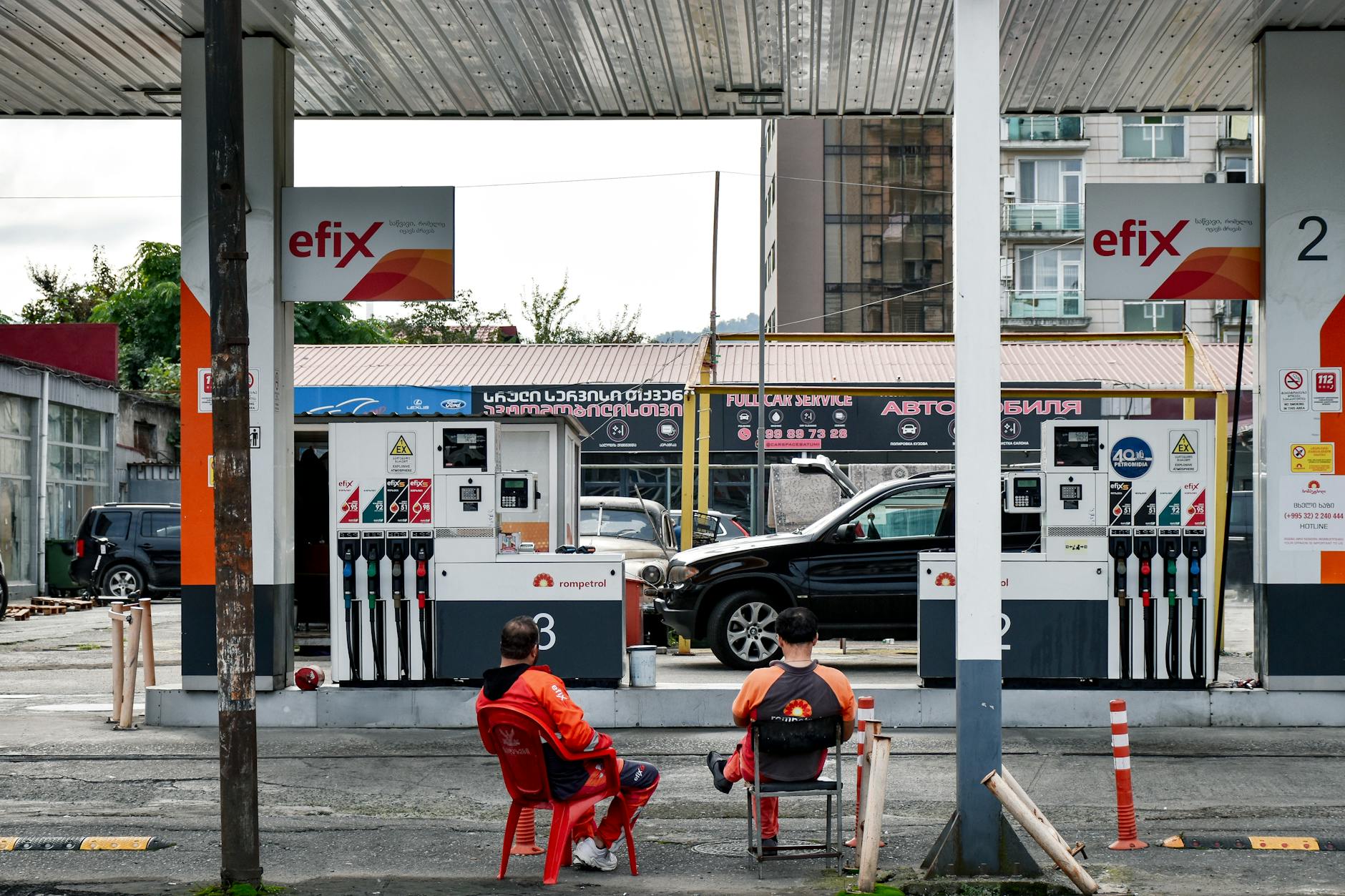Have you ever wondered why some electric vehicle (EV) owners are trading in their sleek, eco-friendly rides for traditional gas-guzzlers? 🤔 It’s a surprising trend that’s catching the attention of both the automotive industry and environmentalists alike. While EVs have been hailed as the future of transportation, a growing number of early adopters are experiencing a case of buyer’s remorse.
The promise of a cleaner, greener future is enticing, but the reality of EV ownership isn’t always as electrifying as expected. From range anxiety to unexpected costs, EV owners are facing a series of challenges that are making them reconsider their choice. But what exactly is driving this shift back to gasoline-powered vehicles?
In this blog post, we’ll explore the seven key reasons why some EV enthusiasts are unplugging from their electric dreams and returning to the familiar world of fossil fuels. From persistent range issues to technological uncertainties, we’ll dive deep into the factors that are causing this unexpected U-turn in the automotive world. 🚗⚡️➡️🚗⛽
Range Anxiety: A Persistent Challenge

Limited driving distance on a single charge
Range anxiety remains a significant hurdle for many electric vehicle (EV) owners, often driving them back to familiar gasoline-powered cars. The limited driving distance on a single charge is a primary concern that contributes to this anxiety.
Most current EVs offer a range between 150 to 300 miles on a full charge, which may seem sufficient for daily commutes but can prove challenging for longer trips. This limitation becomes particularly apparent when compared to the range of traditional gasoline vehicles, which can often exceed 400 miles on a single tank.
Let’s compare the average ranges of popular EVs and gasoline vehicles:
| Vehicle Type | Average Range (miles) |
|---|---|
| Entry-level EV | 150-200 |
| Mid-range EV | 200-300 |
| High-end EV | 300-400 |
| Gasoline Car | 350-500 |
| Hybrid Car | 500-700 |
This disparity in range can lead to:
- Frequent charging stops on long journeys
- Careful trip planning and route calculations
- Stress and uncertainty during unexpected detours or traffic
- Reluctance to use the vehicle for spontaneous trips or emergencies
Insufficient charging infrastructure
The limited driving range of EVs is further exacerbated by the current state of charging infrastructure. While the network of charging stations is growing, it still lags behind the ubiquity of gas stations, especially in rural areas and along less-traveled routes.
Key issues with charging infrastructure include:
- Uneven distribution of charging stations
- Lack of standardization across charging networks
- Limited availability of fast-charging options
- Unreliable or malfunctioning charging stations
These factors contribute to “range anxiety” and can make EV ownership less appealing, particularly for those who frequently travel long distances or live in areas with sparse charging options.
Time-consuming recharging process
Even when charging stations are available, the time required to recharge an EV battery can be a significant drawback compared to the quick refueling process of gasoline vehicles. This disparity becomes more pronounced during long trips or when time is of the essence.
Charging times vary depending on the type of charger and the vehicle’s battery capacity:
| Charger Type | Charging Time (0-80%) |
|---|---|
| Level 1 (120V) | 20-40 hours |
| Level 2 (240V) | 4-10 hours |
| DC Fast Charging | 30-60 minutes |
While DC fast charging has significantly reduced charging times, it’s still considerably longer than the few minutes it takes to fill up a gas tank. This extended charging process can lead to:
- Increased travel times on long journeys
- Scheduling challenges for busy individuals
- Frustration during peak usage times at charging stations
- Reluctance to use EVs for time-sensitive trips
As we delve into the next section, we’ll explore how the higher costs associated with EV ownership can further influence an owner’s decision to switch back to gasoline vehicles.
Higher Costs of EV Ownership

A. Initial purchase price comparison
When it comes to the cost of ownership, the initial purchase price of electric vehicles (EVs) remains a significant hurdle for many consumers. Let’s compare the average prices of EVs and their gasoline counterparts:
| Vehicle Type | Average Price (USD) |
|---|---|
| Electric | $55,600 |
| Gasoline | $36,500 |
As we can see, EVs generally come with a higher price tag, often $10,000 to $20,000 more than comparable gasoline models. This substantial upfront cost can be a deterrent for budget-conscious buyers, even with available tax incentives and rebates.
B. Battery replacement expenses
One of the most significant long-term costs associated with EV ownership is the potential need for battery replacement. While modern EV batteries are designed to last for many years, they do degrade over time and may eventually require replacement.
- Average EV battery replacement cost: $5,000 to $15,000
- Typical battery lifespan: 8-10 years or 100,000-150,000 miles
These costs can be a shock to EV owners, especially if they occur outside the warranty period. In contrast, gasoline vehicles don’t face such a substantial single replacement cost during their lifetime.
C. Insurance and maintenance costs
Contrary to popular belief, EVs can be more expensive to insure and maintain:
- Insurance: Due to higher vehicle values and specialized repair needs, EV insurance premiums are often 15-30% higher than those for gasoline cars.
- Maintenance: While EVs have fewer moving parts, their specialized components can be costly to repair or replace.
| Maintenance Aspect | Electric Vehicle | Gasoline Vehicle |
|---|---|---|
| Oil changes | Not required | $30-$75 every 3-6 months |
| Brake pad replacement | Less frequent | More frequent |
| Battery checks | $50-$100 annually | Not applicable |
| Specialized repairs | $100-$300/hour | $50-$150/hour |
D. Electricity prices vs. gasoline prices
While EVs are generally cheaper to fuel than gasoline vehicles, the cost advantage can vary significantly based on local electricity and gas prices:
- Average electricity cost in the US: $0.14 per kWh
- Average gasoline price in the US: $3.50 per gallon (as of 2023)
To illustrate:
- EV cost per mile: $0.04 – $0.06
- Gasoline vehicle cost per mile: $0.10 – $0.15
However, electricity prices can fluctuate, and in some regions, the cost difference may be less pronounced. Additionally, if EV owners primarily charge at public stations instead of at home, their fueling costs can increase substantially.
While EVs offer potential long-term savings, the higher upfront costs and uncertain long-term expenses lead some owners to reconsider their choice. As we explore further, we’ll see how these financial considerations, combined with other factors, contribute to some EV owners’ decision to switch back to gasoline vehicles.
Performance Issues in Real-World Conditions
Reduced range in extreme weather
One of the most significant performance issues that EV owners face in real-world conditions is the reduced range in extreme weather. This phenomenon affects electric vehicles more severely than their gasoline counterparts, often leading to frustration and range anxiety among drivers.
Impact of cold weather on EV range
Cold temperatures can significantly decrease an EV’s range due to several factors:
- Increased battery resistance
- Higher energy consumption for cabin heating
- Reduced regenerative braking efficiency
| Temperature | Average Range Reduction |
|---|---|
| 20°F (-6°C) | 20-30% |
| 0°F (-18°C) | 40-50% |
| -20°F (-29°C) | Up to 60% |
Effects of hot weather on EV performance
While not as severe as cold weather, hot temperatures can also impact EV range:
- Increased energy consumption for air conditioning
- Battery cooling systems drawing power
- Potential for battery degradation in extreme heat
These real-world performance issues can lead to unexpected range reductions, causing inconvenience and anxiety for EV owners.
Battery degradation over time
Another crucial factor that influences EV performance is battery degradation. Unlike traditional vehicles, where engine performance remains relatively stable over time, EV batteries gradually lose capacity, affecting range and overall performance.
Factors affecting battery degradation:
- Charge cycles
- Depth of discharge
- Charging habits (fast charging vs. slow charging)
- Environmental conditions
Most EV manufacturers warranty their batteries for 8-10 years or 100,000-150,000 miles, guaranteeing at least 70% capacity retention. However, the reality of diminishing range over time can be a significant concern for long-term EV owners.
Towing and hauling limitations
For many drivers, especially those who rely on their vehicles for work or recreational activities, towing and hauling capabilities are essential. Unfortunately, EVs often fall short in this area compared to their gasoline-powered counterparts.
Challenges of towing with EVs:
- Significantly reduced range (often by 50% or more)
- Limited towing capacity for many EV models
- Lack of specialized EV models for heavy-duty tasks
| Vehicle Type | Average Towing Capacity |
|---|---|
| Compact EV | 0-2,000 lbs |
| Mid-size EV SUV | 2,000-5,000 lbs |
| Full-size EV Truck | 7,000-10,000 lbs |
| Gasoline Full-size Truck | 10,000-20,000+ lbs |
These limitations can be deal-breakers for consumers who require vehicles with robust towing capabilities, leading some to switch back to gasoline-powered options.
As we’ve seen, performance issues in real-world conditions pose significant challenges for EV owners. However, it’s important to note that advancements in EV technology are continually addressing these concerns. Next, we’ll explore another factor that influences the decision to switch back to gasoline vehicles: the lack of model variety and options in the EV market.
Lack of Model Variety and Options
Limited choices in certain vehicle segments
While the electric vehicle market has expanded significantly in recent years, many EV owners find themselves switching back to gasoline cars due to the lack of variety in certain vehicle segments. This limitation can be particularly frustrating for consumers who have specific needs or preferences that aren’t met by the current EV offerings.
- SUVs and trucks: Limited options for larger vehicles
- Sports cars: Few high-performance EV choices
- Budget-friendly models: Fewer affordable EV alternatives
For example, families looking for spacious minivans or outdoor enthusiasts seeking rugged off-road vehicles may find their options severely limited in the EV market. This scarcity of choices often leads consumers back to the more diverse gasoline-powered vehicle lineup.
Fewer customization possibilities
Another factor contributing to EV owners reverting to gasoline cars is the restricted customization options available for electric vehicles. Many consumers value the ability to personalize their vehicles to suit their individual tastes and needs. However, EVs often fall short in this aspect compared to their gasoline counterparts.
| Customization Options | Gasoline Cars | Electric Vehicles |
|---|---|---|
| Engine modifications | Extensive | Limited |
| Aftermarket parts | Abundant | Scarce |
| Color choices | Wide range | Limited palette |
| Interior upgrades | Numerous | Fewer options |
This lack of customization can be particularly disappointing for car enthusiasts who enjoy modifying their vehicles or those who require specific adaptations for work or lifestyle purposes.
Absence of specific features in EV models
Many EV owners find themselves returning to gasoline vehicles due to the absence of certain features they’ve come to expect or require in their daily lives. While electric vehicles often boast advanced technology and innovative features, they may lack some traditional elements that consumers value.
Some notable features that may be missing or less prevalent in EV models include:
- Long-range towing capabilities
- Advanced off-road systems
- High-performance driving modes
- Specialized work-related features (e.g., for construction or agriculture)
For instance, a contractor who relies on their vehicle for towing heavy equipment may find that current EV offerings don’t meet their power and range requirements. Similarly, outdoor enthusiasts might struggle to find electric vehicles with the same level of off-road capabilities as their gasoline-powered counterparts.
As the EV market continues to evolve, addressing these limitations in model variety and options will be crucial for retaining current electric vehicle owners and attracting new ones. Manufacturers will need to expand their lineups to cater to a broader range of consumer needs and preferences, ensuring that the transition to electric vehicles doesn’t come at the cost of functionality or personal expression.
Charging Inconveniences

Home charging setup challenges
Setting up a home charging station for an electric vehicle (EV) can be a significant hurdle for many owners. While it may seem straightforward, the process often involves unexpected complications and costs.
-
Electrical upgrades: Many homes, especially older ones, require electrical system upgrades to support EV charging. This can include:
- Panel upgrades
- New dedicated circuits
- Wiring modifications
-
Installation costs: Professional installation of a Level 2 charger can be expensive, ranging from $500 to $2,000 or more.
-
Permit requirements: Some jurisdictions require permits for EV charger installations, adding time and complexity to the process.
-
Rental property limitations: Renters may face restrictions from landlords or property managers when attempting to install charging equipment.
Unreliable public charging stations
Public charging infrastructure, while expanding, still presents challenges that can frustrate EV owners:
- Availability issues: High-demand locations often have occupied or out-of-service chargers.
- Compatibility problems: Not all EVs are compatible with all charging stations.
- Payment complications: Multiple charging networks require different apps or memberships.
- Maintenance concerns: Poorly maintained stations can lead to unsuccessful charging attempts.
| Issue | Impact on EV Owners |
|---|---|
| Occupied stations | Increased wait times |
| Out-of-service chargers | Unexpected delays |
| Compatibility mismatches | Inability to charge |
| Payment system failures | Frustration and wasted time |
Longer trip planning complexities
Planning longer trips with an EV requires more forethought and preparation compared to gasoline vehicles:
- Route planning around charging stations
- Estimating charging times and factoring them into the journey
- Considering weather conditions that may affect range
- Backup plans for unexpected charging needs
This additional complexity can be off-putting for drivers accustomed to the simplicity of refueling gasoline vehicles.
Workplace charging availability
The availability of charging options at work can significantly impact an EV owner’s experience:
- Limited availability: Many workplaces have not yet installed charging stations.
- Competition for spots: In offices with charging stations, demand often exceeds supply.
- Charging etiquette: Navigating shared use of limited charging spots can be socially challenging.
- Inconsistent policies: Some employers charge for electricity use, while others offer it as a free benefit.
These charging-related inconveniences collectively contribute to “charging anxiety,” a factor that can drive some EV owners back to gasoline vehicles. The perceived simplicity and ubiquity of gas stations make traditional vehicles more appealing to those frustrated by the current state of EV charging infrastructure. As we explore further, we’ll see how these charging challenges intersect with other factors influencing EV owners’ decisions to switch back to gasoline cars.
Technological Concerns and Uncertainties

Rapidly evolving EV technology
The electric vehicle (EV) industry is experiencing rapid technological advancements, which can be both exciting and concerning for potential buyers. While innovation drives progress, it also creates uncertainty about the longevity and relevance of current EV models. This fast-paced evolution can lead some EV owners to switch back to gasoline cars, seeking more stability in their vehicle choices.
| Pros of Rapidly Evolving EV Tech | Cons of Rapidly Evolving EV Tech |
|---|---|
| Improved range and efficiency | Risk of current models becoming outdated quickly |
| Enhanced charging capabilities | Potential depreciation of older models |
| Advanced safety features | Difficulty in keeping up with latest tech |
| Better performance | Uncertainty about future standards |
Concerns about battery lifespan
Battery life is a crucial factor in EV ownership, and it remains a significant concern for many drivers. While modern EV batteries are designed to last for many years, the uncertainty surrounding their long-term performance and replacement costs can be a deterrent for some owners.
Key concerns about EV battery lifespan include:
- Gradual capacity loss over time
- Impact of extreme temperatures on battery performance
- High replacement costs
- Limited data on long-term battery degradation
Software and electronics reliability
As EVs become increasingly reliant on complex software systems and electronics, concerns about their reliability and potential for malfunction arise. Unlike traditional gasoline vehicles, EVs are essentially computers on wheels, which introduces new challenges and potential points of failure.
Some common software and electronics concerns include:
- Over-the-air updates causing unexpected issues
- Touchscreen interface failures
- Cybersecurity vulnerabilities
- Compatibility issues with third-party charging networks
Resale value uncertainties
The rapidly evolving nature of EV technology, combined with concerns about battery lifespan and software reliability, creates uncertainty in the resale market. This uncertainty can be a significant factor in pushing some EV owners back to gasoline vehicles, which have a more established and predictable resale value trajectory.
Factors influencing EV resale value:
- Pace of technological advancements
- Battery health and remaining capacity
- Availability of charging infrastructure
- Government incentives and regulations
- Brand reputation and model popularity
As the EV market continues to mature, these technological concerns and uncertainties may diminish. However, for now, they remain significant factors influencing some EV owners’ decisions to return to gasoline-powered vehicles. Despite these challenges, the EV industry continues to innovate and address these issues, working towards a future where electric vehicles can provide the same level of confidence and reliability as their gasoline counterparts.
Familiarity and Comfort with Gasoline Vehicles

Established fueling infrastructure
One of the most significant advantages of gasoline vehicles is the vast and well-established network of fueling stations. This extensive infrastructure provides drivers with peace of mind and convenience that is still unmatched by electric vehicle charging networks. Let’s compare the availability of fueling options:
| Aspect | Gasoline Stations | EV Charging Stations |
|---|---|---|
| Number of locations | 150,000+ in the US | 50,000+ in the US |
| Average refueling time | 5-10 minutes | 30 minutes to several hours |
| Availability | 24/7 in most areas | Limited in some regions |
| Payment options | Cash, credit cards, mobile apps | Often requires specific apps or accounts |
This familiarity and ease of access to fuel make many drivers hesitant to switch to electric vehicles, especially for those who frequently travel long distances or live in areas with limited EV charging infrastructure.
Wider service and repair network
Another factor contributing to the comfort of owning gasoline vehicles is the extensive network of service and repair shops. This network has been built over decades, resulting in:
- Abundance of skilled mechanics familiar with gasoline engines
- Widely available spare parts
- Competitive pricing due to market saturation
- Quick turnaround times for repairs and maintenance
In contrast, EV owners often face challenges finding specialized technicians and may experience longer wait times for repairs due to the limited availability of parts and expertise.
Decades of refinement in gasoline technology
Gasoline-powered vehicles have benefited from over a century of continuous improvement and refinement. This long history has led to:
- Highly efficient and reliable engines
- Advanced safety features
- Improved fuel economy
- Enhanced performance across various driving conditions
Many drivers find comfort in the predictability and proven track record of gasoline technology, making them reluctant to embrace the relatively new and evolving electric vehicle technology.
Easier long-distance travel
For many drivers, the ability to embark on long-distance trips without significant planning is a crucial factor. Gasoline vehicles offer several advantages in this regard:
- Quick refueling stops (5-10 minutes)
- Consistent range regardless of weather conditions
- No need to plan charging stops or routes based on charging station availability
- Ability to carry extra fuel for emergencies
These factors contribute to a sense of freedom and spontaneity that many drivers appreciate and are reluctant to give up when considering the switch to electric vehicles.
As we explore the reasons why some EV owners switch back to gasoline cars, it’s important to recognize that familiarity and comfort play a significant role in their decision-making process. The established infrastructure, wider service network, refined technology, and ease of long-distance travel all contribute to the appeal of gasoline vehicles. However, as EV technology continues to advance and charging infrastructure expands, these advantages may diminish over time, potentially shifting the balance in favor of electric vehicles in the future.
